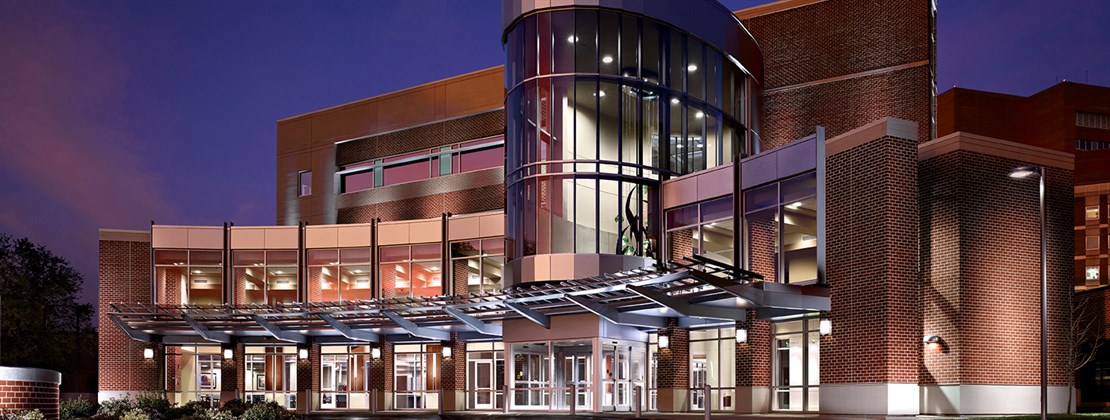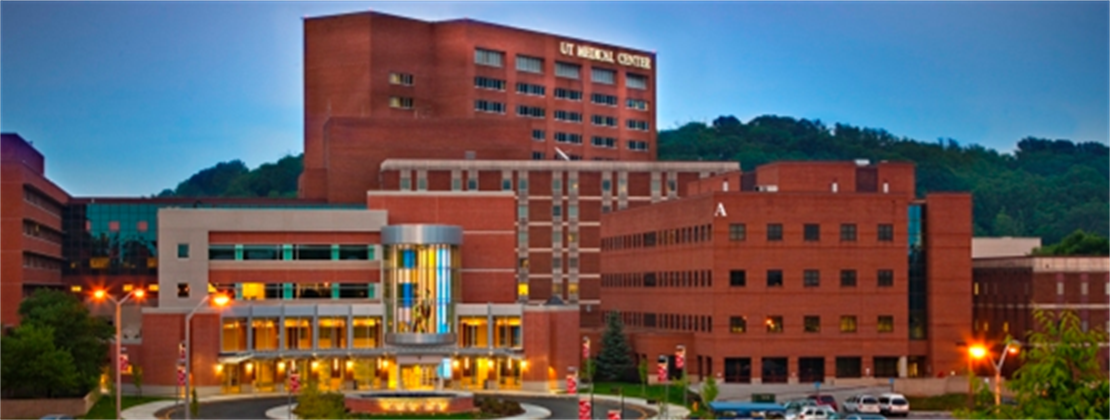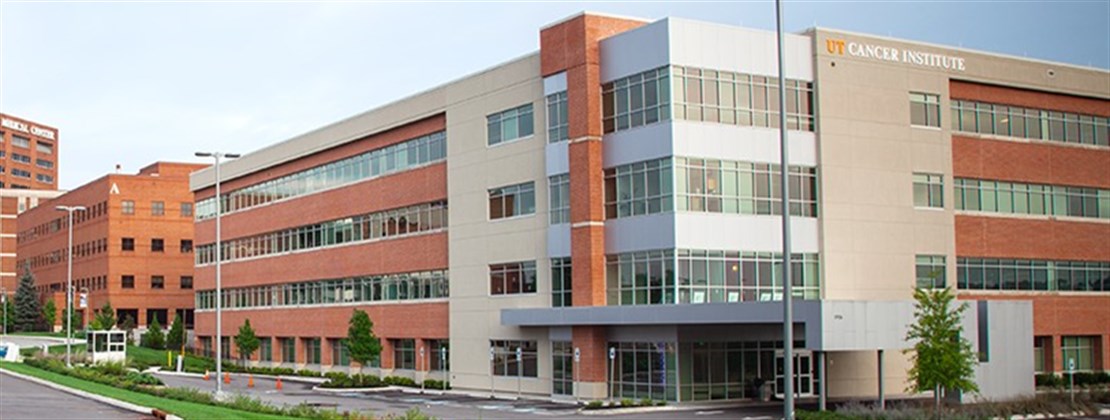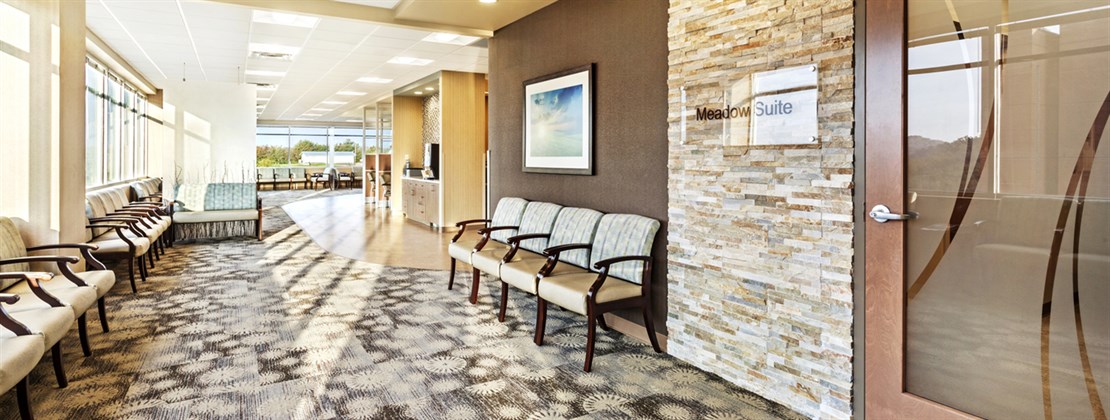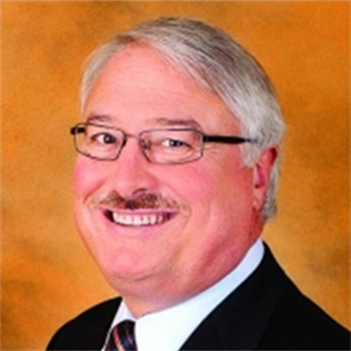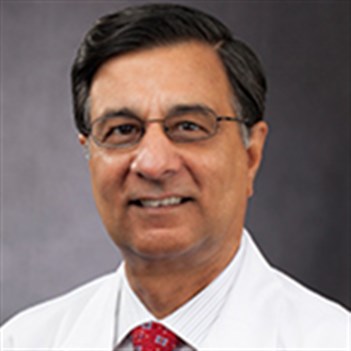Chief, Division of Hematology & Oncology – University of Tennessee Graduate School of Medicine
- Position:
- Chief, Division of Hematology & Oncology
- Specialty:
- Leadership, Hematology, Oncology, Cancer, Medical Oncology, Hematology / Oncology
- Location:
- Knoxville, Tennessee
Position Description
The University of Tennessee Graduate School of Medicine (UTGSM) invites applications and nominations for the position of Chief, Division of Hematology and Oncology. The new Chief will have the opportunity to lead a well-established Division of Hematology/Oncology and to serve as a distinguished leader within the Cancer Institute at the UT Medical Center in Knoxville, TN. The successful applicant will be offered a minimum of 50% protected time for their academic and programmatic development initiatives within the Division. The incoming Chief will be provided necessary support, infrastructure, and resources to recruit new faculty, to provide strategic direction in establishing an ACGME accredited fellowship program, and to develop a flourishing clinical education and research program that will further advance the tripartite healing, education, and discovery mission of the UT Medical Center.
The incoming Division Chief will be based at UT Medical Center in Knoxville, TN, the only tertiary referral, academic medical center within a catchment population of 1.8 million people. The UT Cancer Institute is one of 6 centers of excellence within the 601-bed teaching hospital, and has received recognition as one of the Top 100 oncology programs in the country by Becker’s Hospital Review. In 2012, the UT Cancer Institute opened their new, $25 million facility, which boasts 108,000 square-feet for state-of-the-art care. The new institute offers a fully integrated medical home for multi-disciplinary and comprehensive cancer care, surrounded by a large team of sub-specialized & fellowship trained experts. The Cancer Center registered over 90,000 patient visits with over 3,300 new cancer cases in 2016. State-of-the-art diagnostic and treatment services are available at UT Cancer Institute, including PET/CT, TrueBeam Radiotherapy system, as well as leading edge clinical trials, providing patients the latest in technology to detect and fight cancer. The Hematology/Oncology Division consists of 11 clinical faculty members.
Qualified applicants must possess an MD/DO (or equivalent) and must be eligible for licensure in the state of Tennessee. Additional qualifications include ABIM board certification in hematology and/or oncology and have a track record of clinical excellence and academic accomplishments that will support academic appointment at the Associate Professor or Professor rank. Ideal candidates will have administrative experience that will position them for success in this strategically important leadership role.
University of Tennessee Medical Center – Leadership & Bios
James Neutens, PhD, FASHA
Dean and Professor of Obstetrics and Gynecology for UTGSM
Dr. Neutens initially joined the University of Tennessee in 1984 and came to the Graduate School of Medicine in 1990 where he taught and administered the clerkship and residency programs in the Department of Obstetrics and Gynecology. In 1997 he was selected to serve as the Associate Dean and eventually the Executive Associate Dean for the UT Graduate School of Medicine. In 2005, he was appointed as the Interim Dean for the UTGSM. He was selected to fill the Dean’s position in May 2007. Given his longstanding devotion to education, one of his principal goals is to advance the education mission of the UT Graduate School of Medicine while supporting excellence in research. Dean Neutens remains active at the national level in medical education.
John L. Bell, MD
Director, UT Cancer Institute; Professor, Department of Surgery at the UT Graduate School of Medicine
Dr. John L. Bell received his medical degree from the University of Alabama/Birmingham, following which he completed an internship and residency in General Surgery in 1986 at the same facility. Dr. Bell then completed a fellowship in Surgical Oncology at the University of Texas, MD Anderson Cancer Center in 1988. Immediately following his fellowship, Dr. Bell was recruited by the Department of Surgery to develop a Division of Surgical Oncology and an overall oncology program at the University of Tennessee Medical Center.
Dr. Bell currently serves as Director of the Cancer Institute at the University of Tennessee Medical Center, a Professor in the Department of Surgery at the University of Tennessee Graduate School of Medicine and a Surgical Oncologist with University Surgical Oncology.
Dr. Bell is a member of numerous societies including the Southern Surgical Association, the American College of Surgeons, the Southeastern Surgical Congress, the American Society of Clinical Oncology, and the American Society of Breast Surgeons. He is past-president of the National Consortium of Breast Centers 2011-2013. He has authored numerous publications and abstracts. He is currently certified by the American Board of Surgery.
Rajiv Dhand, MD
Professor and Chair for Department of Medicine, Associate Dean for UTGSM
Dr. Dhand serves as the first Associate Dean for Clinical Affairs at UT Graduate School of Medicine. As the Assistant Dean for Clinical Affairs, Dr. Dhand oversees all matters related to the clinical services offered by the UT Graduate School of Medicine to include the Resident Clinics for Internal Medicine and Obstetrics/Gynecology and the Family Medicine Clinic to ensure accessible, comprehensive, patient-centered, streamlined, efficient and coordinated care. He works closely with the chairs and clinic directors of these departments. Dr. Dhand is also the Chairman of the Department of Medicine since joining the UT Graduate School of Medicine in 2012. He is Board Certified in Internal Medicine, Pulmonary Medicine and Critical Care Medicine. He is an internationally recognized researcher in the field of aerosol therapy, and has authored over 100 publications.

Division of Hematology & Oncology
The UT Division of Hematology & Oncology is academically based within the Department of Medicine, and has a team of 10 board certified hematologists and medical oncologists. The outpatient clinical operation of the hematology/oncology division is within the Cancer Center, which is the largest provider of cancer care in East Tennessee. The Cancer Center registered over 90,000 patient visits with over 3,300 new cancer patients diagnosed in 2016. In-hospital consultations are provided at the UT Medical Center, the region’s only academic medical center.
The faculty members conduct research studies of national merit through its Office of Clinical Trials at the UT Medical Center’s Cancer Institute. Currently, the institute offers more than 50 clinical trials, enabling them to treat more types of cancer than anyone in the region. The UT Medical Center is also a “member institution” of the Southwest Oncology Group, one of the largest national clinical trials cooperative groups funded by the NCI.
In addition, the Cancer Institute conducts various pharmaceutical and biotechnological company-sponsored research studies, collaborating with other cancer centers around the country and developing its own internal, investigator-initiated clinical trials. For example, internal PET/CT clinical trials studies are offered in collaboration with the Molecular Imaging and Translational Research (MITR) Program, making the most advanced diagnostic equipment in the world available to patients.
Department of Medicine Overview
The Department of Medicine at the University of Tennessee Graduate School of Medicine (UTGSM) is led by Dr. Rajiv Dhand, the Associate Dean of Clinical Affairs at the UTGSM, and the Professor (with tenure) and Chairman of the Department of Medicine. The largest department within UTGSM, the Department of Medicine is comprised of 15 Divisions and 114 full time, part time, and volunteer faculty that provide training to medical residents, fellows, as well as 3rd and 4th year medical students. The department currently offers a number of ACGME accredited training programs, including fellowships in Cardiovascular Diseases, Interventional Cardiology, and Pulmonary Medicine/Critical Care Medicine.
Clinical training is provided at the nationally ranked University of Tennessee Medical Center (UTMC) and affiliated clinics located in Knoxville. The trainees and faculty are committed to providing exceptional patient care in a collegial environment, and several divisions are nationally recognized for their excellence. UTGSM has the twin advantages of being an academic training program without being a large one, where each trainee is well known and recognized for their achievements. We offer several unique programs that encourage trainees to be critical thinkers; and that prepare them for the ever-changing needs of healthcare, both in the current milieu and for the future. In addition to UTGSM’s experienced faculty, they have outstanding support from ancillary staff in both the hospital and ambulatory clinic settings, including a robust basic science research program, a rapidly expanding clinical research initiative and ongoing collaborations with other research institutions in and around Knoxville.
University of Tennessee Medical Center
Since opening in 1956, UTMC is now the only Academic Medical Center, Magnet Designated Hospital, and Level 1 Trauma Center in the region. The University of Tennessee Medical Center, covering 90 acres and composed of a 601–bed teaching hospital and Graduate School of Medicine, serves as a regional referral center for Knoxville and 21 surrounding East Tennessee counties with a catchment population of 1.8 million. Over the decades, UTMC evolved from a small community hospital into a major-medical center with 6 centers of excellence. Today the bustling campus is home to more than 5,000 team members and consistently ranks amongst the best hospitals in the country.
6 Centers of Excellence
• Brain and Spine Institute
• Cancer Institute
• Center for Woman and Infants
• Emergency and Trauma Services
• Heart Lung Vascular Institute
• Advanced Orthopedic Center

UT Cancer Institute
The Cancer Institute at the UTMC is the largest provider of cancer care and the only academic cancer institute in the region. In 2015, the UT Cancer Institute was recognized amongst the top 100 oncology programs in the country by Becker’s Hospital Review. Additionally, the UT Cancer Institute has been continuously accredited by the American College of Surgeons Commission on Cancer since 1980. The Tumor Registry has entered over 30,000 patients since its inception in 1978. The Cancer Institute caters to a variety of specialties and has a breast cancer program accredited by the National Accreditation Program for Breast Centers. State-of-the-art diagnostic and treatment services are available, such as PET/CT, TrueBeam Radiotherapy system, as well as leading edge clinical trials, providing patients the latest in technology to detect and fight cancer. The Cancer Institute is the medical home for comprehensive oncology specialists committed to providing multidisciplinary cancer care in one convenient location.
Research Infrastructure, Opportunities, and Resources
The Cancer Institute at the UT Medical Center has a robust infrastructure for collaborative and interdisciplinary research opportunities that encompass the full breadth of medical discovery through bench-side to bedside investigation. A few of the noteworthy and unique research initiatives currently ongoing include:
- Basic laboratory research programs – focusing on amyloidosis, cancer theranostics, drug delivery systems, and new molecular tracer development programs.
- Translational research programs – focusing on mechanisms of micro-calcifications in various disease models both in vitro and in vivo and how these programs may collaboratively evolve into clinical application regarding prognostic and therapeutic information.
- Clinical research programs – that include the development of pathways which improve outcomes and delivery of various oncologic conditions, lung cancer screening opportunities, and utilization of data analytics for clinical application.
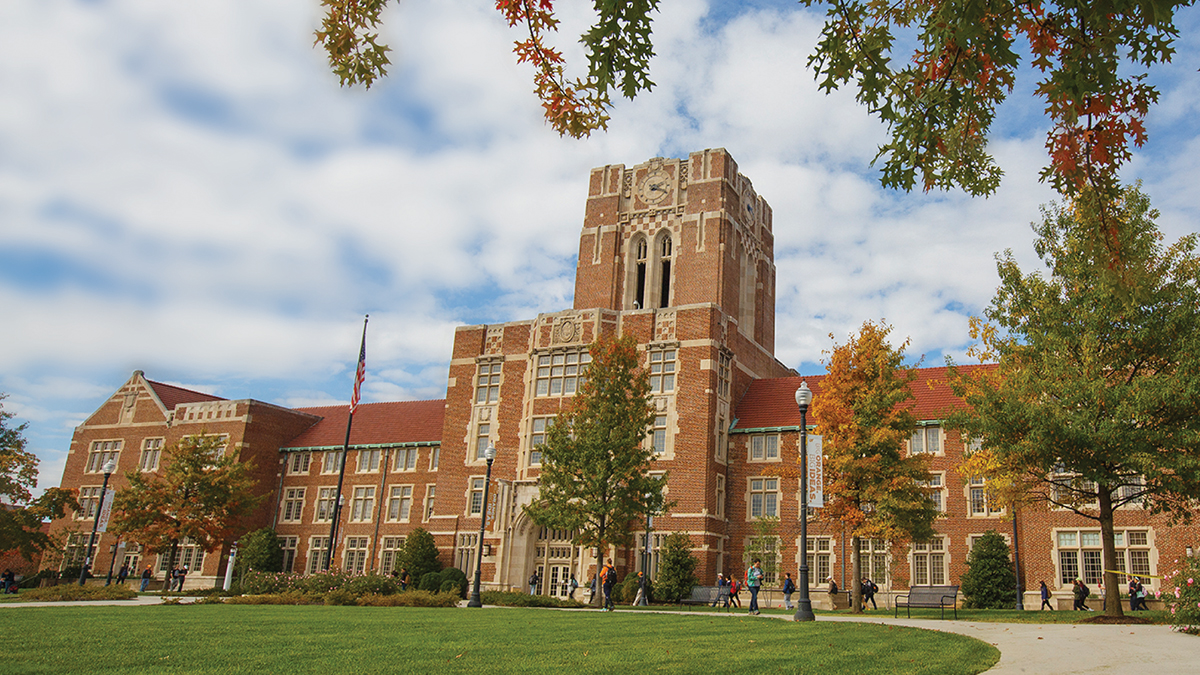
The Institute of Biomedical Engineering (iBME)
The Institute of Biomedical Engineering (iBME) at the University of Tennessee has been established to research solutions to medical problems such as devices for improved delivery of medications and monitoring of patients; better imaging technology; regenerative models to help the body heal itself; and optimized efficiency in the healthcare setting. This new institute connects not only engineering and medicine but also multiple diverse university campuses in a collaboration that is unique in the country; innovative for UT faculty, physicians and students; and beneficial to people everywhere.
iBME provides a unique opportunity for UT to respond to the growing demand for education and research opportunities in the rapidly expanding field of biomedical engineering. Researchers work collaboratively with scientists, physicians, faculty, and students from many UT disciplines to research today’s medical problems, resulting in better healthcare for the state and beyond.
The goals of iBME include generating cross-disciplinary teams to develop healthcare innovations and discover new research funding; to offer a multidisciplinary curriculum and real-world medical experiences to engineering students; to provide a regional resource to improve the general public’s understanding of biomedical engineering; and to establish outreach to area educators and students to develop interest in and knowledge of the field.
Research focus areas include molecular, cellular, and tissue engineering; healthcare engineering and environmental health; and imaging, biomechanics, and sensors. iBME will also feature MS and PhD programs in biomedical engineering that include specialization tracks in the three research focus areas.

Oak Ridge National Laboratory
Oak Ridge National Laboratory (ORNL), located just a few miles from UTMC, is the largest US Department of Energy science and energy laboratory, conducting basic and applied research to deliver transformative solutions to compelling problems in energy and security. Oak Ridge National Laboratory is managed by UT-Battelle, a limited liability partnership between the University of Tennessee and the Battelle Memorial Institute, formed in 2000 for that purpose. ORNL’s diverse capabilities span a broad range of scientific and engineering disciplines, enabling the Laboratory to explore fundamental science challenges and to carry out the research needed to accelerate the delivery of solutions to the marketplace. ORNL supports the Department of Energy’s national mission of scientific discovery (62%), clean energy (17%), and security (21%). ORNL’s scientific programs focus on materials, neutron science, energy, high-performance computing, system biology, and national security.
Dr. Mitchell Goldman, Assistant Dean of Research at UTGSM, facilitates collaboration with the University of Tennessee, Knoxville, Oak Ridge National Laboratories, and other external research partners. Oak Ridge partners with more than 250 universities in some capacity and includes several major Southeastern research universities on the UT-Battelle management team to ensure a broad engagement of faculty and students in ORNL’s science program. ORNL works with the industry to move research to the marketplace and collaborates with other research institutions, universities, and the state of Tennessee to expand its capabilities, increase the ability of its facilities and expertise, and create research and educational opportunities for students and teachers.
UT College of Veterinary Medicine
The University of Tennessee College of Veterinary Medicine (UTCVM) was established by an act of the Tennessee Legislature in 1974. James P. Thomason is the current Dean of the College of Veterinary Medicine and the translational research efforts are directed by Amy LeBlanc, DVM, Associate Professor. The College is part of the University of Tennessee statewide system and is located on the Agricultural Campus of the University of Tennessee in Knoxville, with several clinician-scientists and bench-top researchers who are engaged in cancer research. UTCVM is one of only 30 veterinary colleges in the nation, providing opportunities for Tennessee students, while serving pet owners and the livestock industry as well as protecting public health, enhancing medical knowledge and genating economic benefits to the state and nation.
Knoxville, TN
Trip Advisor named Knoxville, Tennessee as a Top 10 destination on the rise and offers live music, culture, outdoor adventure, eclectic shopping and highly acclaimed cuisine. In 2012, the city was named top 10 for economic growth potential and 1 of 3 cities in the country to have recovered best from the recession. In 2013, the city was named #2 on the list of “Happiest Cities to Work in Right Now” by CareerBliss.com, Top 50 Best Places for Business and Careers,& by Forbes, and in the Top 10 Best Places to Retire by Livability.com

The rolling green hills and vibrant downtown of Knoxville provides residents with an excellent quality of life. They city of Knoxville is surrounded by the Tennessee River and numerous nature trails and parks, providing hiking, cycling, and jogging as opportunities to enjoy the year-around mild temperatures and sunny weather. Cumberland Gap National Historical Park and the Great Smoky Mountains National Park, which are both within a 90-minute drive, are beautiful places to go for an outdoor adventure with family and friends.

For music and art enthusiasts, Knoxville has the Knoxville Mercury concert series, Knoxville Symphony Orchestra, and Knoxville Museum of Art featuring one of the largest figurative glass-and-steel assemblages in the world. Community members also enjoy cheering on the minor-league baseball team Tennessee Smokies, the Knoxville Ice Bears professional hockey team, and the much-hyped SEC-affiliated University of Tennessee Volunteers football and basketball teams.





